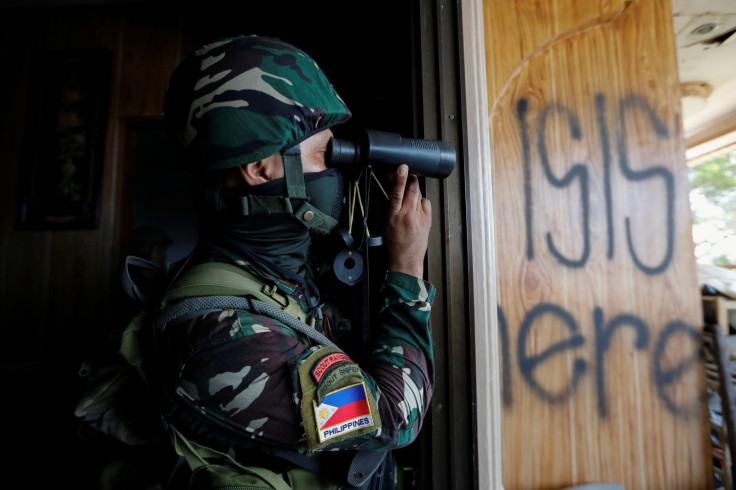Philippines may introduce Muslim-only ID cards 'to identify terrorists' as Marawi siege continues
Rights group calls for outright rejection of Muslim-only ID cards system, deeming it 'a collective punishment'.
A possible plan by the Philippines to introduce compulsory identity cards for Muslims in areas of the country will discriminate the religious group in the Christian-majority country, a rights group has claimed.
Police, military and around 200 Muslim religious and community leaders discussed the proposal during a conference in Central Luzon , in the north of the country, on 4 July.
Police said the system could help authorities and Muslim leaders "identify and weed out undesirable individuals and terrorists in the provinces of Pampanga, Bataan, Bulacan, Tarlac, Nueva Ecija and Aurora", local media reported.
The claims were made as the Philippine army is battling against militants affiliated to the Isis terror group in the southern town of Marawi, which fighters seized in May.
Chief Superintendent Aaron Aquino said the system would be implemented in several provinces in the region after it was already endorsed in Paniqui, in Tarlac province, earlier this year.
"This system is a good practice from Paniqui, Tarlac, and we want this to be replicated in all Muslim communities in the whole region for easy and efficient identification of our Muslim brothers and sisters,"Aquino was quoted by local news site Rappler as saying.
Muslim leaders present at the conference did not question the proposal, Aquino said, according to the Inquirer news site.
Human Rights Watch (HRW) has called for an outright rejection of the system, arguing it would discriminate against Muslims and breach international laws.
"The International Covenant on Civil and Political Rights and other human rights treaties to which the Philippines is a party prohibits discrimination based on religion. The IDs could also violate the rights to equal protection of the law, freedom of movement, and other basic rights," the group said in a statement.
"Requiring Muslim-only IDs in response to a perceived failure of Muslims to prevent Islamist fighters from entering Marawi City is a form of collective punishment. It is irrelevant from a rights perspective that during the consultation, some Muslim leaders did not object outright to the proposal."
The group also claimed that since the Marawi siege began, discrimination against Muslims has increased in the country.
The Philippine embassy in London has not replied to a request for a comment.
Fighting in Marawi

The siege of Marawi began on 23 May, when Maute and Abu Sayyaf militants – affiliated to Isis – seized the town in retaliation to the army's failed attempt to capture terrorist leader Isnilon Totoni Hapilon.
President Rodrigo Duterte declared martial law in the island of Mindanao, where Marawi is located, and accused residents of letting militants shelter in the besieged city.
Fighting in Marawi has caused the death of more than 300 militants, 82 troops and 39 civilians, according to latest estimates.
More than 200,000 people have also been displaced, with the army estimating between 300 and 500 civilians remain trapped in areas where fighting is concentrated. Their lives are at risk due to bombings, starvation and militants' use of civilians as human shields.
The army said earlier in June that militants were using around 100 civilians as human shields, ammunition carriers and stretcher-bearers.
A senior military commander claimed Hapilon may have fled the town. The army said it was investigating the claims.
© Copyright IBTimes 2025. All rights reserved.




















